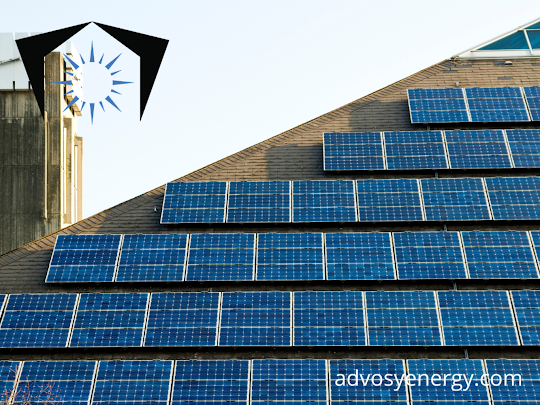How GOING SOLAR benefits PUBLIC health and the environment.
A lot of people are aware of solar power and its position within the "green energy" category. But, they don't have a clue about the particular advantages to health and the environment that solar power provides. These benefits are much greater than you could imagine.
How does solar power affect the emission of greenhouse gases? What does this mean for the water supply and ground? What are you able to do to improve your general health?
These questions will help you find new energy sources that can benefit you, your community as well as the natural environment. Here's your short guide.
CARBON DIOXIDE EMITIONS
Carbon dioxide in the atmosphere has significant impact on climate change. It's absorbed into the atmosphere and remains in the air for many decades while radiating heat to the Earth, continuously warming the earth.
Climate change could have many negative impacts on public health. It makes it easier for infectious diseases to spread, increases the frequency of famines and droughts, and causes more natural disasters to occur. You can help diminish the risks of these by switching to solar power.
Solar panels generate electricity, which reduces air pollution. They don't need to burn carbon dioxide for power.
Renewable energy sources may eventually replace fossil fuels that emit carbon dioxide. This will prevent the use of oil and coal which release massive greenhouse gases into the air.
METHANE EMISSIONS
A lot of people are aware of carbon dioxide and the connection it has to climate change. Fewer people know about methane.
Methane is more stable in the atmosphere as compared to carbon dioxide. But it traps more radiation and heat. The effect of methane is 25 times greater than carbon dioxide pounds for pound.
Burning natural gas and petroleum produces huge quantities of methane into the atmosphere. Methane is not required for solar energy source transmission or use. The more solar energy you use the less natural and petroleum gas you are using as well as the lesser methane you produce.
GROUND POLLUTION
Ground is damaged by non-renewable energy sources in many ways. Oil is often able to seep into the soil and cause damage to plants and animals. Fracking for natural gas can also harm habitats and other layers of earth.
Although nuclear power plants do not help in the growth of carbon dioxide levels in the air, radioactive material from nuclear power plants can create groundwater contamination. They often render areas inhospitable and lead to radiation poisoning in the population.
Ground pollution isn't caused by solar panels. The rain that wash solar panels off will not attract their materials into the ground.
Solar panels are made up of lead, and contain other substances that are a danger. Solar panels have an average of 25 years lifespan, so the chance of being damaged is very low. They can be reused in the event that they are damaged.
A solar panel placed on your yard will prevent sunlight and prevent water from getting to the grass beneath. Be sure to place your panels in a place which does not restrict plant growth. If a plant grows under it, you should provide it with a bit more water.
AER POOLLUTION
According to the World Health Organization, 4.2 million people are prematurely killed each year because of polluting the air in the outdoor. The main cause of air pollution is burning of oil. It contains several harmful substances that can cause carcinogens.
Coal isn't any better because it's full of chemicals, like sulfur dioxide that could harm your lungs if inhaled. Coal particulates usually contain small metal pieces and can cause harm to your organs once they get into your bloodstream.
Air pollutants can have dangerous effects on the eyes and may cause short-term and long-term damage to your vision. Solar panels aren't known to make the air polluted at all. The materials in them aren't released into the atmosphere, even in the most extreme circumstances of the risk of fire.
TRANSMISSION AND STORAGE
Urban planners usually put power plants in residential areas. However even power plants situated near homes are typically away from the intended location.
Planners set up long transmission lines to transmit electricity across the town. However, some electricity is lost during the transmission process. This requires the power plant to burn more fuel to fill in the gap lost.
Solar installations Scottsdale systems don't require long transmission lines, and will only produce the amount of energy you need.
The excess energy is transferred to batteries , and stored for power outages. You can also tap into the stored power of your batteries at night, when the panels aren't being used. It will ultimately save fossil fuels and greatly reduce the carbon footprint of your home.
WATER UTILISATION
Hydropower is a different alternative source of renewable energy. It doesn't pollute or emit carbon dioxide. However, it's dependent on rivers and water bodies that are natural which can affect ecosystems as well as limit water access.
Solar panels don't impact water usage in any way. It is possible that you don't even have to use water to clean your panels because rain can cleanse any buildup of dirt, dust, or dust that has accumulated on them.
solar flagstaff az
chandler energy
solar power Albuquerque
solar installers Las Vegas
tucson solar company
Advosy Energy
4411 S 40th St Suite D-5 Phoenix, AZ 8540
602-584-8294

